Experts From Around the World Gather at RSU Conference on Contraception and Abortion
The International Federation of Abortion and Contraception Professionals (FIAPAC) conference Fertility Control in the Hands of Women took place in Riga on 9 and 10 September. Rīga Stradiņš University (RSU) had the honour to take part in organising the event and hosting Federation representatives from all over the world: Canada, USA, Mexico, Australia, Nepal, and a number of European countries.
The opening ceremony in the RSU Great Hall was attended by the President of the Federation, Sharon Cameron, First Lady of Latvia, Mrs Andra Levite, and the RSU Rector, Prof. Aigars Pētersons.
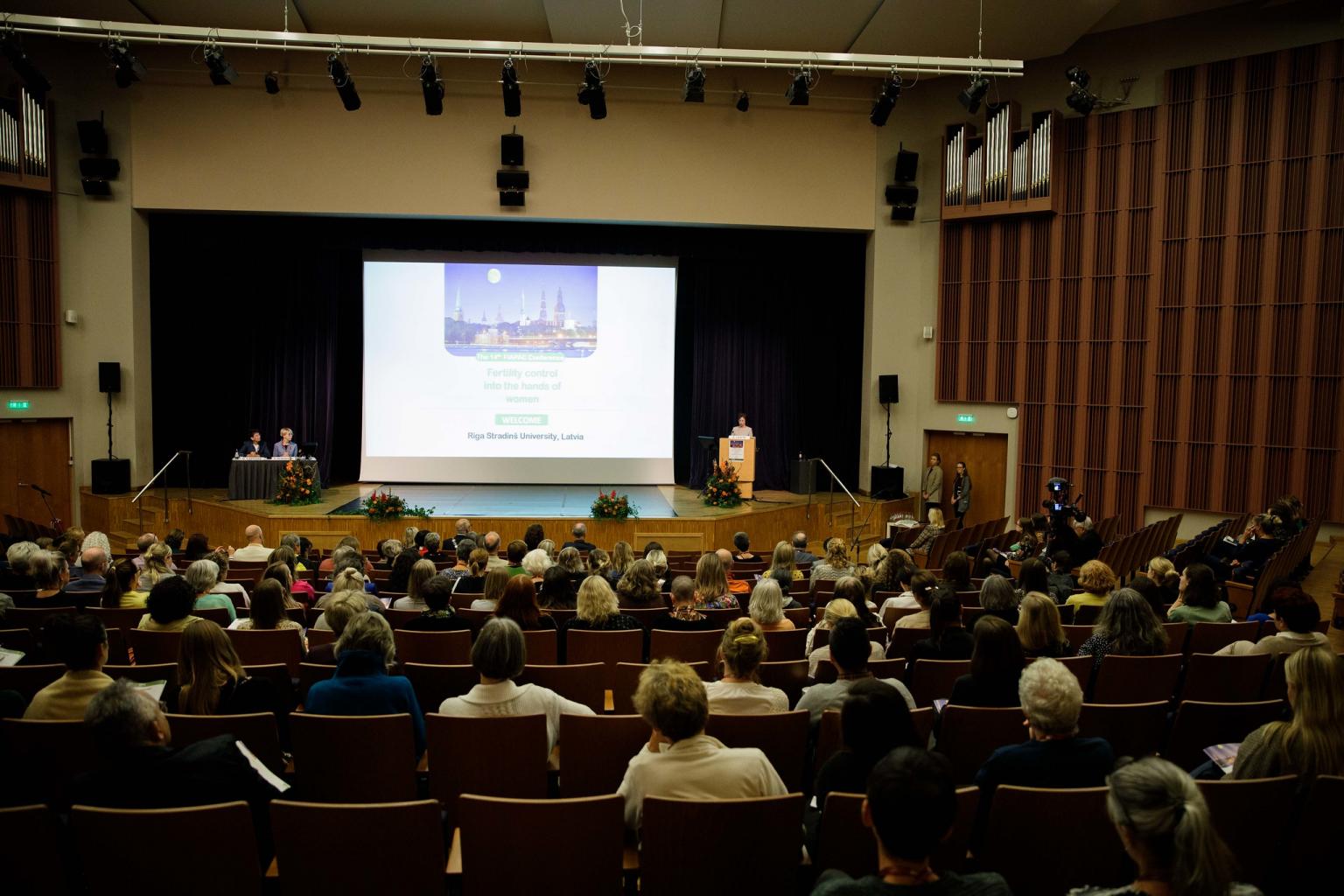 Photo: Dāvis Doršs (Chancery of the President of Latvia)
Photo: Dāvis Doršs (Chancery of the President of Latvia)
Although the number of abortions in Latvia is at an average level and does not show tendencies to be increasing, representatives of the conference’s national organising committee, Prof. Gunta Lazdāne and Prof. Dace Rezeberga, point out that the relatively high number of abortions sought women under 19 years of age is nevertheless worrying. Last year, 146 girls had pregnancies terminated at their own request. This, experts say, could be due to gaps in the education system, with schools failing to cover health education topics in a comprehensive enough way.
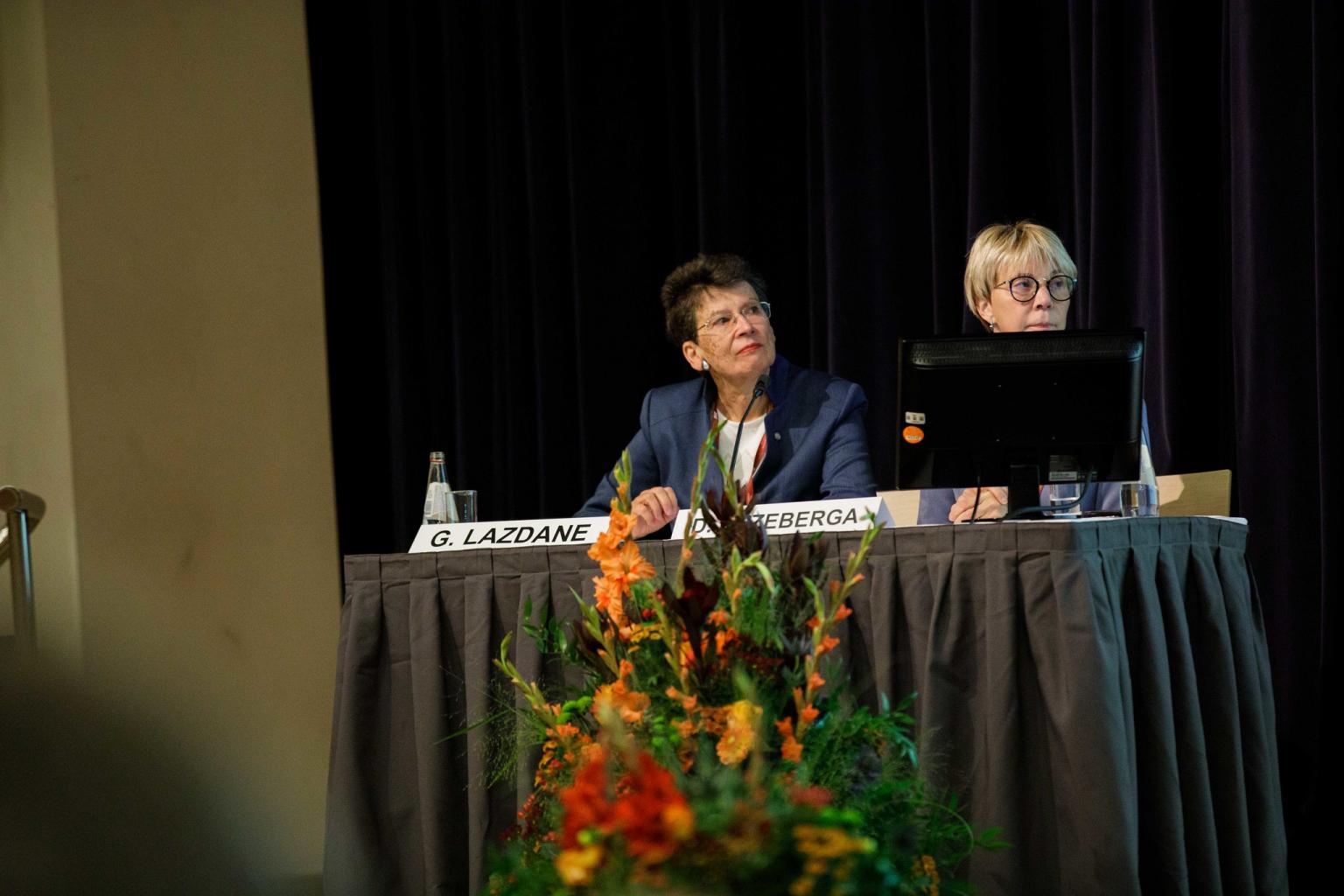 Representatives of the conference’s national organising committee, Prof. Gunta Lazdāne and Prof. Dace Rezeberga. Photo: Dāvis Doršs (Chancery of the President of Latvia)
Representatives of the conference’s national organising committee, Prof. Gunta Lazdāne and Prof. Dace Rezeberga. Photo: Dāvis Doršs (Chancery of the President of Latvia)
Meanwhile, another worrying aspect that Vija Veisa, a lecturer at RSU and the president of the Latvian Association of Gynaecologists and Obstetricians, addressed is the disproportionate ratio between surgical and medical abortions in Latvia. When choosing to terminate a pregnancy, women in Latvia choose undergoing a surgical abortion more frequently – almost 80% of the time. The current proportion is markedly different from many European countries. In Estonia, medical abortions are more readily available and more widely used, while in Sweden, 80% of all abortions before the ninth week of pregnancy were medical already in 2007. According to the expert, the Latvian statistics could be related to the fact that both methods are not equally accessible and there are often unjustified barriers in Latvia that contradict World Health Organisation guidelines. Veisa elaborated on this at the opening of the conference in her report “Abortion in the Baltic Countries”.
In her opening remarks, First Lady of Latvia Andra Levite stressed that pregnancy and becoming a mother should be a welcome events in a woman’s life, not something that is feared and imposed by society or unfavourable circumstances.
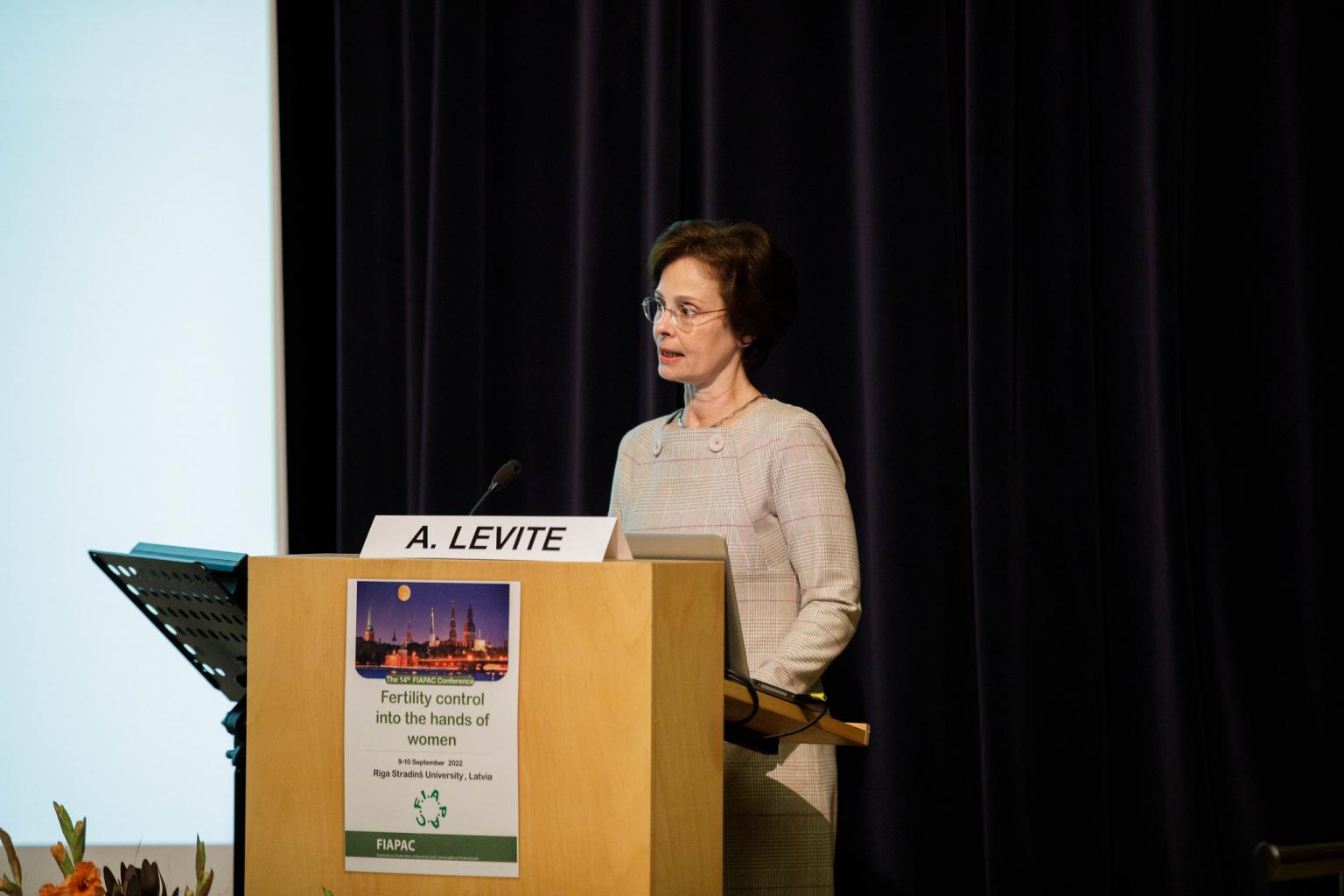 First Lady of Latvia Mrs Andra Levite. Photo: Dāvis Doršs (Chancery of the President of Latvia)
First Lady of Latvia Mrs Andra Levite. Photo: Dāvis Doršs (Chancery of the President of Latvia)
‘Young girls should not have to start their adult life with an abortion,’
said Mrs Levite, calling for the focus to be on prevention rather than dealing with consequences. ‘Unfortunately, school curricula often forget to teach about the human body and its functions, which is undoubtedly one of the most important subjects for young people,’ continued Mrs Levite. She added that in her daily work as a doctor she often has to answer questions and dispel misconceptions about pregnancy when she comes in contact with teenage girls. She also pointed out that the demographic situation, which is a worry for most European and Western countries, would not be solved by banning abortion:
‘Making access to abortions illegal is more likely to lead to illegal, medically unqualified abortions, which in turn would cause the deaths of young women.’
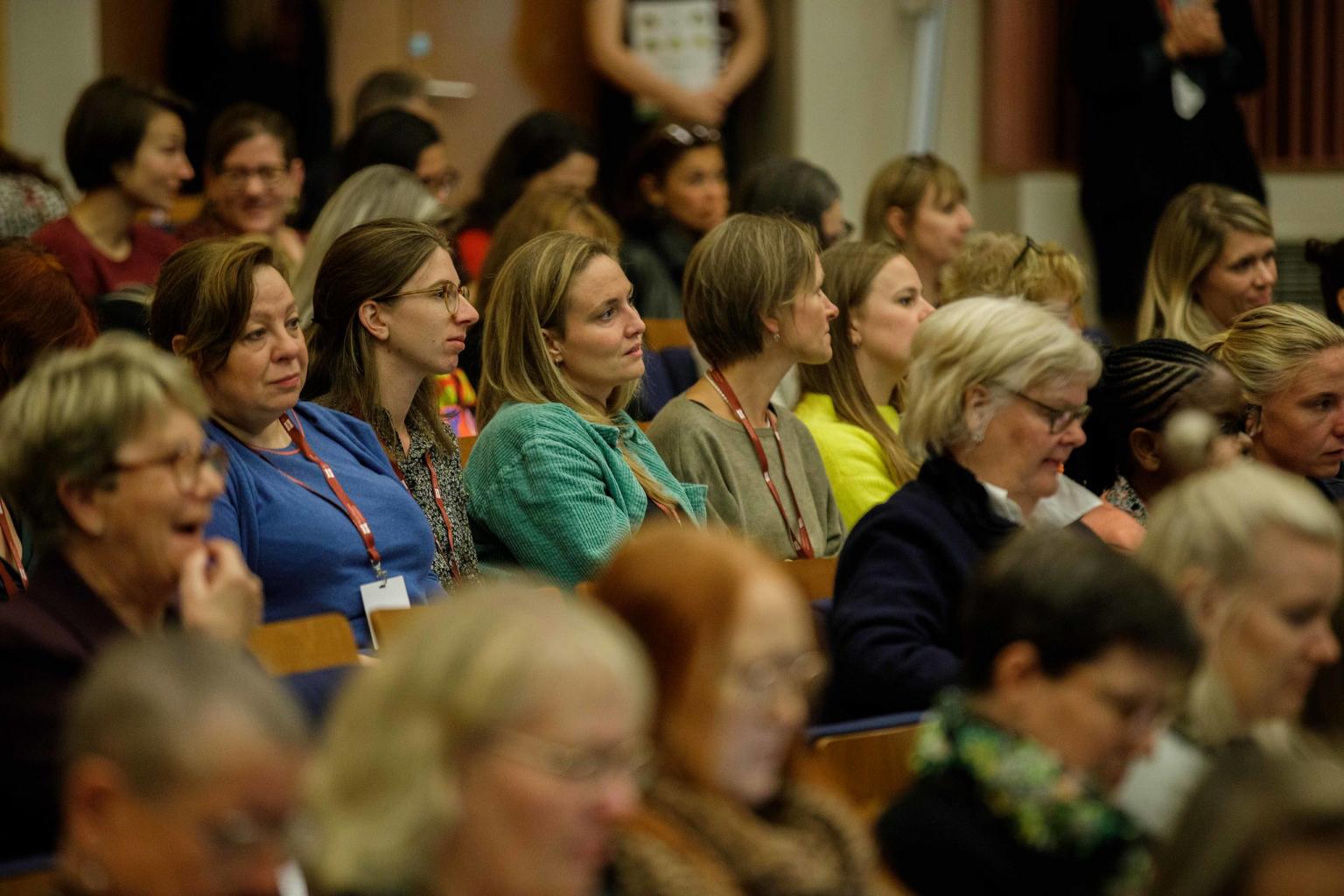 Photo: Dāvis Doršs (Chancery of the President of Latvia)
Photo: Dāvis Doršs (Chancery of the President of Latvia)
There is currently no representative data on contraception in Latvia over the last 10 years, as the last reproductive health survey was conducted in 2011. Smaller-scale studies, however, show that overall contraceptive prevalence remains relatively low and less effective contraceptive methods are often used. In addition, new technologies are slowly emerging in Latvia, such as the contraceptive implant, which has a very low risk for unplanned pregnancies compared to other methods.
Experts continue to talk about the low health literacy of the population, which is directly linked to sexual and reproductive health in general, the use of effective, modern contraception that is optimal for each couple and the reduction of unplanned, unwanted pregnancies.
‘Sexuality is natural for all people and very important throughout one’s lifetime. Understanding your sexuality and knowing the factors that influence (i.e., promote or hinder) your sexual and reproductive health is very important, because you can’t build a house without a solid foundation.
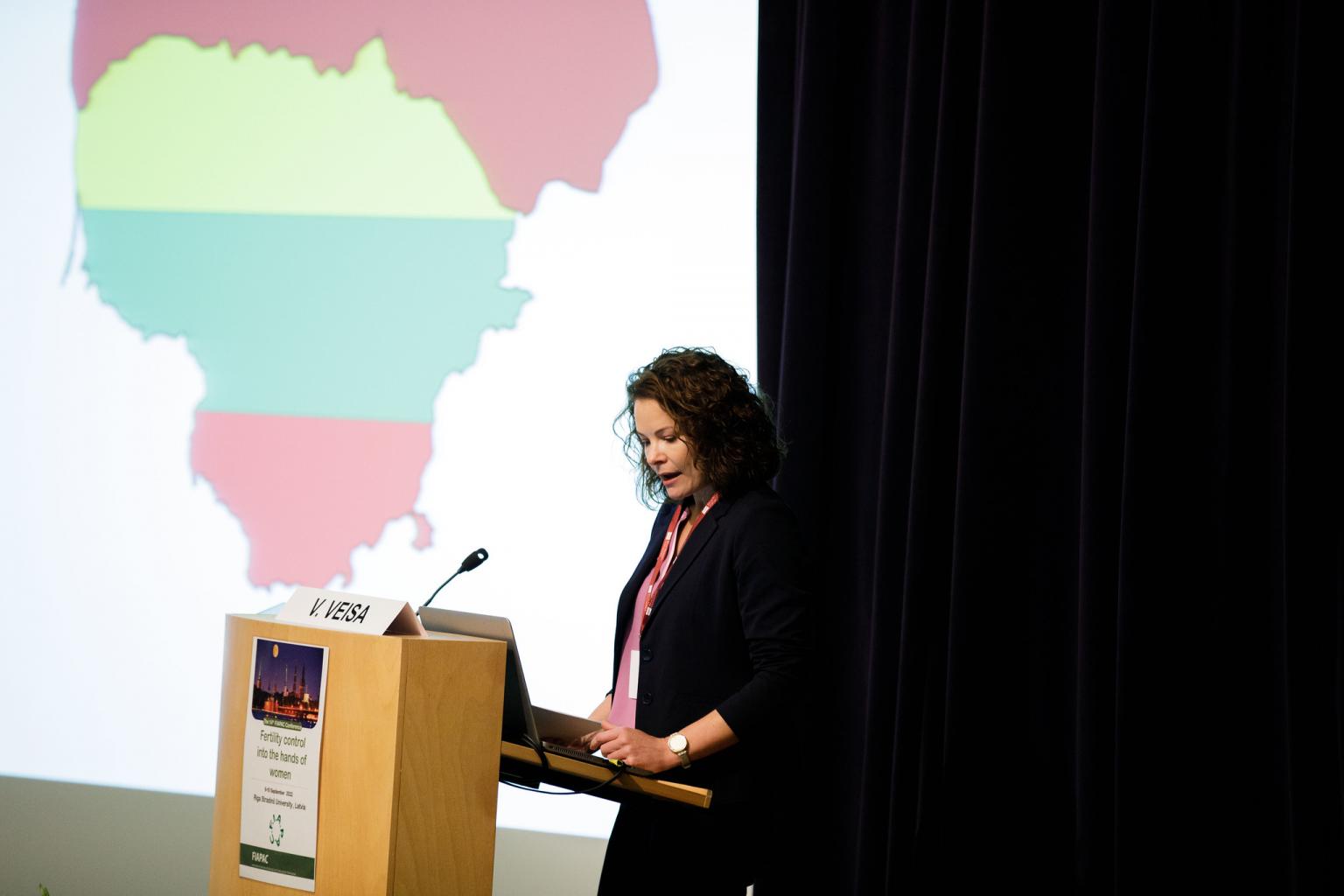 Vija Veisa, President of the Latvian Association of Gynaecologists and Obstetricians. Photo: Dāvis Doršs (Chancery of the President of Latvia)
Vija Veisa, President of the Latvian Association of Gynaecologists and Obstetricians. Photo: Dāvis Doršs (Chancery of the President of Latvia)
That is why health literacy and sex education, including about contraception and abortion at all stages of life, are so important,’ says Veisa.
Related news
 From Data Harmonisation to Artificial Intelligence: EUCanScreen Modernises Cancer Screening Across EuropePublic Health, International Cooperation
From Data Harmonisation to Artificial Intelligence: EUCanScreen Modernises Cancer Screening Across EuropePublic Health, International Cooperation


